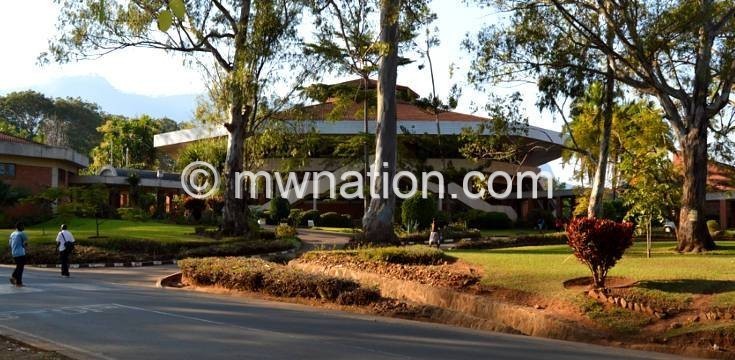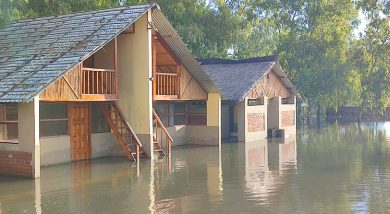Towards an inclusive, equitable quality education
In this last part of the series, our reporter JOHN CHIRWA interrogates solutions and interventions put in place to achieve inclusive education as some institutions of higher learning in the country are operating without a policy on inclusive education.

Chancellor College, a constituent college of the University of Malawi, has this year recruited a sign language interpreter.
College registrar Mary Wasiri says this is a milestone in making sure that all persons are accorded the right to inclusive education as expounded in The Disability Act of 2012.
“We never used to have a sign language interpreter,” says Wasiri.
But for this academic year, she says the college was challenged to address the plight of special needs students when they realised that they had two first year students with profound hearing impairment.
“The students couldn’t hear anything that was being delivered during the orientation week. And, therefore, we immediately scouted for one sign language interpreter.
“It’s one of the lessons we have learnt that we may need to have several interpreters in case we receive more students with hearing impairment,” she says.
Kate Mwamvani, 19, is a second-year student with a profound hearing impairment. She spent her first year without any sign language interpreter.
She recounts her ordeal.
“It was never easy,” she says, adding: “I was following lectures through lipreading. But it’s never easy because some lecturers talk too fast, while others are mobile in front. In that case, I couldn’t follow the lessons.”
“It’s easy to follow when they illustrate their points on the board or through power point presentation. But some lecturers don’t bother writing on the board whatever they are teaching.
“Some lecturers were generous enough to give me written notes, but others didn’t care about my plight,” says the Bachelor of Arts (Humanities) student.
She says lack of a sign language interpreter affected her studies.
She says her end of semester grades were unsatisfactory such that in some courses she ended up writing supplementary examinations—a second chance examination for students who fail on first sitting.
Today, Mwamvani is all smiles as she is assisted by the sign language interpreter.
“I am now able to follow all lectures. I hope there will be no room for me to write supplementary exams again,” she says.
Mwamvani, however, says the college needs to recruit more sign language interpreters because “one person is not enough to assist all of us”.
“We also have a lot of classes. Sometimes our classes clash. This affects us because one person can’t attend to us all at the same time, and we end up missing lessons,” she says.
The college has eight students with hearing impairment—five of them have a partial hearing impairment and three with profound hearing impairment.
Chikondi Mwale, the sign language interpreter, says it is the three—one second year and two first year students—who need special assistance.
“The five are advised to sit in front in every lecture and in that way are able to follow lessons through partial hearing coupled with lipreading.
“But it is the three other students that need sign language if they are to follow lessons,” says the Zambia-trained sign language interpreter.
Mwale says she stands beside the lecturer in class and interprets everything that the lecturer teaches. She says she also interprets questions and answers that arise as the class progresses.
She says with the three special needs students on her timetable, her normal day begins at 7am and ends at 7pm, groping from one class to the other to interpret the lectures.
“I am always busy. But I am able to manage my time perfectly to assist all of them satisfactorily,” she says.
Civil Society Education Coalition (CSEC) executive director Benedicto Kondowe says inclusivity of higher education in Malawi is still a problem because most institutions are not admitting students with disabilities.
“At present it is the University of Malawi that is admitting most students with disabilities. Efforts have just started with Mzuzu University. But most of the universities are not admitting special needs students,” he says.
According to the 2018/19 Education Sector Performance Report (ESPR), in the 2018/19 fiscal year, public and private institutions of higher education had a total of 117 students with special needs.
Of all public and private universities, the report says the University of Malawi had enrolled the highest number of students with special needs (82) the majority of whom (42) were enrolled at Chancellor College.
Kondowe says the major problem that other institutions are not admitting many special needs students is “our policy guiding selection to university”, arguing that the policy “is doing more harm than good to students with disabilities”.
“Now, we are talking about equitable selection to university, but we do not have a quota specifically for students with disabilities.
“These are students who go through a very difficult environment from primary to secondary school. So, if we have a policy that seeks to equalise the opportunities, why should that policy not consider persons with disabilities?” queries Kondowe.
He says as an education activist, he doesn’t support quota system as it is being implemented now because “it is leaving out very marginalised students, including those with disability”.
“For example, our study shows that the 10 quotas for every district had no person with disability. It means they are discriminated. We don’t need this quota system. In any case, the quota system needs to address issues of disability inclusion and not districts as is the case now,” he argues.
However, Wasiri is of the contrary view on admitting special needs students using quota system, arguing that “this is not an alternative because it will exclude some deserving special needs students”.
Wasiri says the University of Malawi has a policy of admitting all candidates with special needs “as long as they have at least six points in each subject, regardless of the average points that they have”.
“For us, the issue of quota doesn’t arise. A quota means ‘for this number of students we admit, so many should be those with special needs.’ The disadvantage of this is that some of them would be returned after meeting the quota.
“But we don’t have a quota for students with special needs. As long as they qualify and we have a medical report that confirms that one has got a disability that disadvantages one’s learning ability, they are admitted,” she says.
Wasiri says that is the reason the number of students with special needs keeps rising at the college, from 40 students two years ago to the present 79.
Other institutions with deliberate admission policies for students with disabilities, according the ESPR, include Domasi and Nalikule colleges of education, while the Malawi University of Science and Technology (Must) is in the process of developing one.
Despite having such a special arrangement, the Disability Rights Clinic based at Chancellor College’s Faculty of Law study established that the college has no policy on inclusive education, something which the study says is contributing to challenges special needs students face on campus.
The clinic’s president Kabula Yande Chagwamnjira says it is mandatory for institutions of higher learning to have a policy on disability and inclusive education.
“It is retrogressive for an institution which has students with disabilities not to have such a policy. This is mandatory if the plight of special needs students on campus is to be addressed,” she says.
Ministry of Education, Science and Technology (MoEST) spokesperson Lindiwe Chide says her ministry has the National Strategy on Inclusive Education (2017-2021) which they expect institutions to adopt.
She says: “As a ministry, we have a strategy in place that is being implemented by all institutions to ensure that they are as inclusive as possible. We expect the institutions to align their policies to this overarching strategy.”
Chagwamnjira, however, says lack of such policies is to some extent contributing to challenges facing students with special needs in accessing inclusive education.
She says, for instance, students at Chancellor College are redirected to other programmes because the institution lacks equipment such as an embosser (printer) for mathematical or science formulas.
“The one they have is for humanity subjects only. So, students are redirected to humanities. But this is an infringement of human rights,” she says.
She says some students are faced with inadequate facilities, and learning and teaching materials. She says this simply means that special needs students are working under a very difficult environment to attain quality education which is a contravention of the Disability Act of 2012.
“So, we need a clear policy that addresses all these issues,” she suggests.
Wasiri admits that the college has no policy on inclusive education, saying the only policy they have mainly focuses on admission.
“We are working on a detailed policy that will be aligned to the ministry’s policy on inclusive education,” she says.
She, however, says the institution has made strides to address challenges of special needs students even in the absence of the detailed policy.
“Our institution was built long time ago when issues of special needs were not given much attention.
“But we are in the process of constructing walkways for those with physical disabilities to use.
“For example, the library has no lift. But plans are underway to put up a structure that will allow persons with disabilities to access the library,” she says.
Wasiri says the college has also taken up other measures such as refurbishing the resource centre and recruiting special needs students’ attendants whose job is to take care of those students who need special help.
“We did this after noticing that the students we recruited this year needed special help more than the students we had in previous years.
“So, for this reason, if some students need 24 hours help, we allow them to come with their relatives, and we provide accommodation for such students and guardians. The idea is to make sure that no one is left behind in their quest for education,” she says.
Indeed, no one should be left behind in education as the Sustainable Development Goal number four demands all governments to ensure inclusive and equitable quality education and promote lifelong learning opportunities for all.





